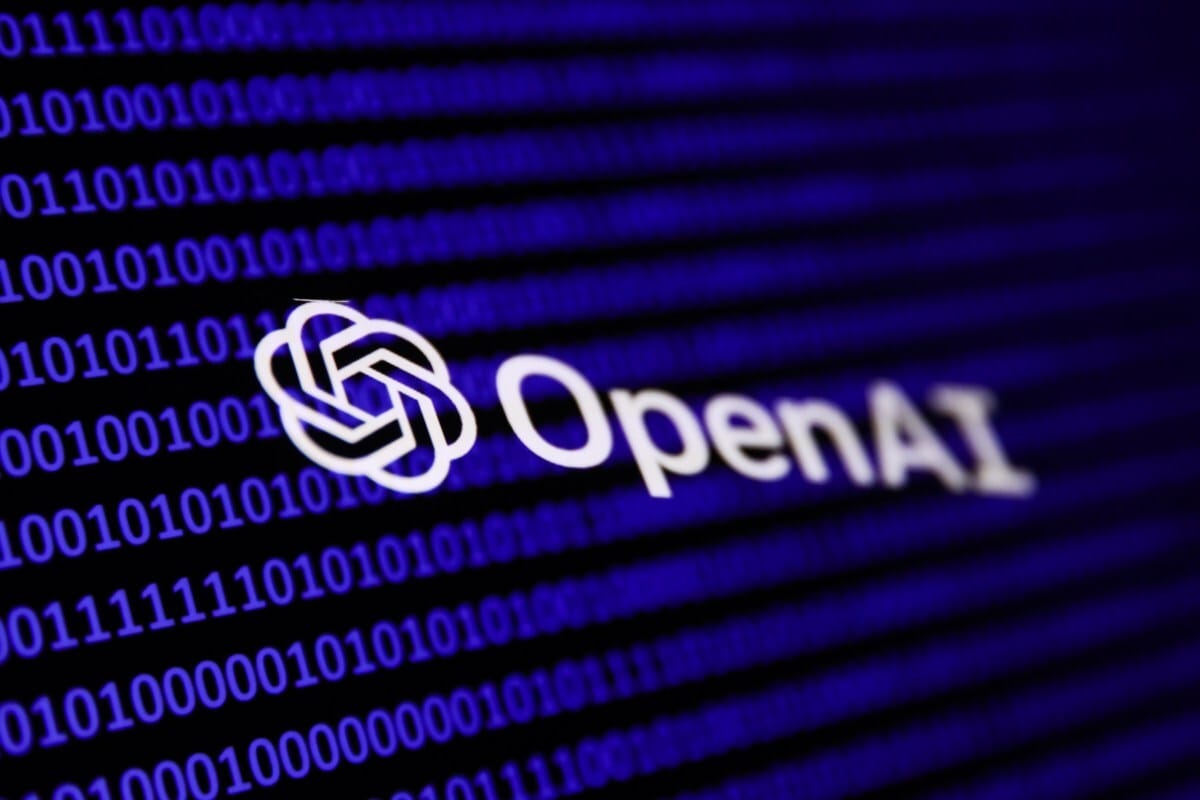- 6thWave AI Insider
- Posts
- OpenAI's Game-Changing Deal with U.S. Government
OpenAI's Game-Changing Deal with U.S. Government
AI Shakeup: Governments, Startups, and Tech Giants Collide

Governments, Startups, and Tech Giants Collide
Hold onto your circuits! Today's AI landscape is crackling with unexpected moves from OpenAI, government partnerships, and Silicon Valley's latest power plays. Some stories will make you rethink everything you know about artificial intelligence. 🚀🤖
(Read Time: 5 Minutes)
Today's Edition
Top Stories
OpenAI's Game-Changing Deal with U.S. Government

Image Source: TechCrunch
Overview of the Partnership
OpenAI has made a significant move in the AI market by partnering with the U.S. General Services Administration (GSA). This agreement allows federal agencies to access ChatGPT Enterprise for only $1 per agency for the next year. This deal positions OpenAI to potentially outpace competitors like Anthropic and Google in the race for government contracts. The GSA has recently approved multiple AI vendors, including OpenAI, to streamline access to AI tools for federal agencies.
Key Highlights
• Federal agencies can access ChatGPT Enterprise at a reduced price, enhancing their workflows.
• OpenAI offers unlimited use of advanced models for an additional 60 days.
• Federal employees will receive tailored training and access to a new government user community.
• Data security remains a priority, with questions raised about how government data will be protected.
Importance of the Agreement
This partnership is crucial for OpenAI as it aligns with the U.S. government's push to integrate AI into its operations. The GSA's cautious approach ensures that sensitive information is safeguarded while benefiting from AI's efficiencies. OpenAI's competitive pricing could encourage other tech firms to follow suit, potentially transforming how federal agencies utilize AI tools. This deal reflects a growing recognition of AI's role in enhancing government efficiency and responsiveness.
OpenAI Unveils Open-Source Models - A Return to Its Roots

Image Source: TechCrunch
Breaking News: OpenAI's Open-Source Revival
OpenAI has made a significant announcement by releasing two new open-source large language models (LLMs): gpt-oss-120b and gpt-oss-20b. This move marks a return to the company's original open-source philosophy, which it had moved away from in recent years. The release of these models is a major development in the AI industry, offering powerful tools for researchers and developers worldwide.
Key Details
• gpt-oss-120b is a 120-billion parameter model that can run on a single Nvidia H100 GPU.
• gpt-oss-20b is a smaller 20-billion parameter model, designed to run on consumer laptops or desktop PCs.
• Both models are text-only and perform above some of OpenAI's paid models and much of the global competition.
• The models can be connected to external tools, including web search, for enhanced research capabilities.
Impact and Significance
This release represents a shift in OpenAI's strategy and could have far-reaching effects on the AI landscape. By making these powerful models freely available, OpenAI is promoting innovation and democratizing access to advanced AI technology. This move could accelerate AI research and development across various sectors, potentially leading to new breakthroughs and applications. Additionally, the availability of a model that can run on consumer hardware could bring sophisticated AI capabilities to a much wider audience, fostering creativity and problem-solving on a global scale.
Sources: techcrunch.com, venturebeat.com
Google Unveils AI Coding Agent Jules with New Features and Pricing

Image Source: TechCrunch
Overview of Jules
Google has officially launched its AI coding assistant, Jules, after a successful beta phase that lasted a little over two months. This tool, powered by Gemini 2.5 Pro, is designed to assist developers by automating coding tasks. Jules integrates seamlessly with GitHub and can clone codebases into Google Cloud virtual machines. It allows developers to delegate coding tasks while they focus on other responsibilities. The launch follows positive feedback and numerous updates during the beta period, which helped improve the tool's stability and functionality.
Key Features and Pricing Details
• Jules offers an introductory free plan with limits on daily tasks, designed to give users a taste of its capabilities.
• Paid subscription plans are available at $19.99 and $124.99 monthly, providing significantly higher task limits.
• Enhanced privacy policies clarify how user data is utilized for AI training, ensuring private repositories remain secure.
• The tool has been optimized based on user feedback, now supporting features like automatic pull requests and Environment Snapshots for consistent task execution.
Significance of Jules
The launch of Jules marks a significant advancement in AI-assisted coding tools. Its asynchronous operation distinguishes it from competitors, allowing users to initiate tasks and return later to see the results. This flexibility could revolutionize how developers manage their time and projects. As more developers adopt AI tools, understanding user behavior and preferences will be crucial for ongoing refinement. Jules also highlights Google's commitment to integrating AI into everyday coding practices, potentially boosting productivity for developers worldwide.
AI Startup Demands Weekend Work or Offers Generous Buyout

Image Source: Entrepreneur
The Cognition-Windsurf Acquisition Dilemma
Cognition, an AI coding startup, recently acquired Windsurf, another AI startup specializing in code editing. This acquisition has led to a significant shake-up in the workforce, presenting Windsurf employees with a challenging decision. The situation reflects the intense work culture often associated with high-growth tech startups and raises questions about work-life balance in the industry.
Key Details of the Situation
• Cognition acquired Windsurf's intellectual property, product, and staff for an undisclosed amount.
• After cutting 30 employees, Cognition gave the remaining 200 Windsurf staff an ultimatum: accept a nine-month salary buyout or commit to working at least 80 hours per week.
• Cognition's CEO, Scott Wu, openly stated that the company doesn't believe in work-life balance, emphasizing their extreme performance culture.
• Windsurf employees have until August 10 to make their decision.
Implications for the Tech Industry
This situation brings to light the ongoing debate about work culture in tech startups. It showcases the trade-offs between rapid growth and employee well-being. The generous buyout offer, which exceeds typical severance packages, indicates the value Cognition places on retaining committed employees. However, it also raises concerns about sustainable work practices and the potential for burnout in high-pressure environments. This case may influence how other startups approach workforce management and company culture, potentially setting precedents for the industry. It also highlights the competitive nature of the AI sector, where companies are racing to innovate and capture market share, sometimes at the expense of traditional work norms.
Sources: entrepreneur.com
AI's Impact on Search Traffic - Google Denies Dramatic Declines

Image Source: TechCrunch
Understanding the Current Landscape
The rise of AI search features and chatbots has sparked debate about their effect on website traffic. Many studies suggest a decline in traffic to publishers' sites, but Google claims overall organic click volume remains stable. Google argues that average click quality has improved, suggesting users are engaging more with content. However, this does not negate the concerns of publishers who feel the impact of AI on their traffic.
Key Points to Note
• Google asserts that total organic click volume has not dropped significantly year-over-year.
• Despite claims of stability, some publishers are experiencing decreased traffic, while others are gaining.
• Users are increasingly turning to social media platforms like TikTok and Instagram for information, diverting traffic away from traditional search engines.
• Google has introduced features aimed at improving user engagement and providing more opportunities for publishers, but these changes may not compensate for traffic losses.
The Bigger Picture
The tension between AI advancements and traditional search traffic raises questions about the future of online content discovery. While Google insists that AI is not solely responsible for traffic declines, the reality is that user behavior is evolving. Publishers are facing challenges as audiences shift their preferences, and Google’s attempts to reassure them may not be enough to counteract these trends. Understanding this shift is crucial for content creators as they adapt to a changing digital landscape.
Editor’s Picks
Cloudflare reveals Perplexity’s alleged unethical content scraping practices.
Tavily secures $20 million to enhance AI agents’ web connectivity for enterprises.
Google launches Guided Learning to help students build understanding, not just answers.
Cohere’s North AI platform guarantees secure deployment for enterprises.
Lava Payments is set to transform AI transactions with a unified digital wallet.
OpenAI’s latest models spark debate about their capabilities and limitations in the AI community.
Persona vectors offer developers a new way to manage AI personalities effectively.
The introduction of Alexa+ marks a pivotal moment for Amazon’s smart assistant, promising enhanced capabilities but facing challenges in execution.
European search engines Qwant and Ecosia launch a new index for privacy-focused searches.
Two Chinese nationals face charges for allegedly smuggling AI chips to China.
6thWave AI Insider is the go-to AI digest for the movers and shakers. Thousands of tech visionaries, global innovators, and decision-makers—from Silicon Valley to Wall Street—get their daily AI fix from our AI News Hub and Newsletter. We're the fastest-growing AI-centric News Hub on the planet.
Stay curious, stay ahead!
Ava Woods, Your AI Insider at 6thWave.
P.S. Enjoyed this AI knowledge boost? Spread the digital love! Forward this email to a fellow tech enthusiast or share this link. Let's grow our AI-savvy tribe together!
P.P.S. Got a byte of feedback or a quantum of innovation to share? Don't let it get lost in the noise—reply directly to this email. Your input helps upgrade my algorithms!